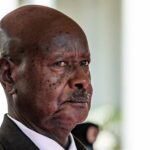
World Bank chief in Sudan for first visit in 40 years
Published on October 1, 2021 at 6:48 AM by Face of Malawi
World Bank president David Malpass, in Sudan on Thursday for the first visit in nearly 40 years by a head of the development body, praised the country’s reforms but cautioned against “political slippages”.
A transitional government and a civilian-military Sovereign Council have been running the African nation since 2019 after the ouster of long-time autocrat Omar al-Bashir.
Under Bashir, Sudan endured decades of corruption, and stringent US sanctions.
“Two years ago, Sudan’s transitional government inherited a deeply damaged economy and society that had suffered decades of conflict and isolation,” Malpass said during a speech in Khartoum.
“Even as the people resolved to break with the past, Sudan faced extraordinary headwinds,” including the Covid-19 pandemic and unprecedented floods, he said.
“Yet the country pressed forward with bold reforms,” making possible more than $50 billion in debt relief which Malpass called the largest Heavily Indebted Poor Countries Initiative ever.
“While there is much work ahead, I commend the Sudanese authorities, civil and military, for their efforts and achievements in working together toward a country that is unified, tolerant and can deliver a better future for all its citizens,” said Malpass, an American who noted “this historic time.”
Just over a week after Sudan’s government said it had thwarted a coup attempt, he added: “It’s critical to avoid political slippages because there is no development without peace and stability.”
– ‘Pivotal moment’ –
Analysts said the putsch highlighted threats to Sudan’s transition to full civilian rule.
That transition has remained shaky, reeling from deep fragmentation among political factions, economic woes and a receding role for civilian leaders in one of the world’s least developed countries.
In June hundreds of protesters took to the streets to demand the government’s resignation over International Monetary Fund reforms leading to the debt relief.
Just over a week after Sudan’s government said it had thwarted a coup attempt, he added: “It’s critical to avoid political slippages because there is no development without peace and stability.”


